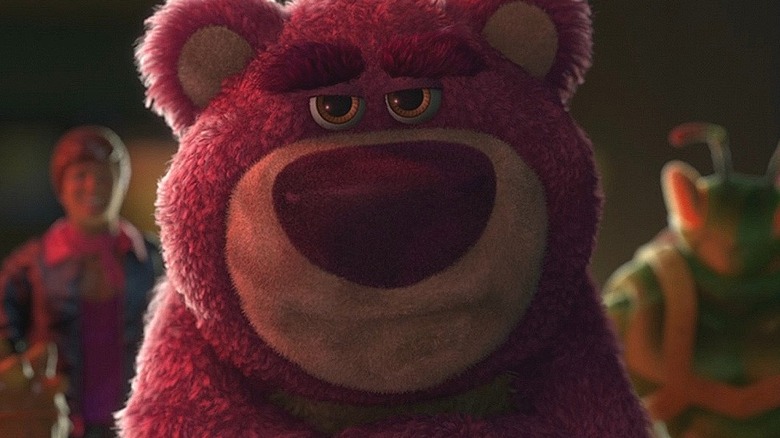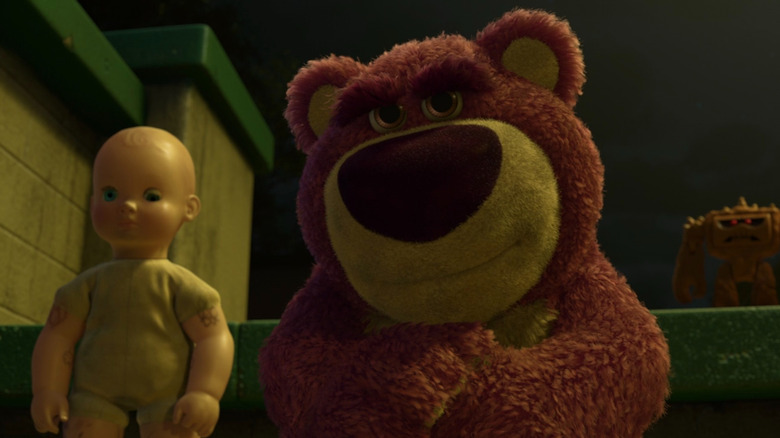Why Lotso From Toy Story 3 Actually Had A Point
The "Toy Story" franchise has been home to its fair share of menacing baddies. From Sid Phillips (voiced by Erik von Detten) to Stinky Pete (Kelsey Grammer), the collection of threats in the beloved Pixar franchise show us that a toy's life isn't always playtime. Perhaps no antagonist hit the plastic pack quite as hard as Lots-o'-Huggin' Bear (Ned Beatty) from "Toy Story 3." The strawberry-scented foe managed to surprise us just as much as he does Andy's toys, starting off as a soft-spoken gentleman who guides the gang around Sunnyside Daycare before revealing his true colors as a harsh leader who rules over the center with an iron fist.
Lotso's actions may be far from commendable, but does that make the ideas behind them completely devoid of reason? Like all great villains, while Lotso goes about spreading his philosophy in an inarguably malicious fashion, his motivation can reveal more about the nature of the character and the world around him that can even give audiences something to chew on long after the film is over. So does Lotso's motivation make sense or does it hold as much weight as the materials he's made out of?
Lotso is a dark reflection of what pain can birth
We learn in "Toy Story 3" that Lots-o'-Huggin' Bear was owned by a young girl, who accidentally left him and some of her other toys behind one day after a picnic. Amongst making their way home, they learn that Lotso has been replaced. Angered by this, he and the others leave and find themselves at Sunnyside, where Lotso's reign of terror takes hold.
While Lotso may not be worth rooting for, it's hard not to sympathize with the plush patriarch. Some fans even see Lotso as a dark reflection of what Woody (Tom Hanks) or Jessie (Joan Cusack) could have become, with the former being a strict and jealousy-prone leader and the latter having a history of being abandoned. Not only does Lotso see the world through pain-filled eyes, but he also recognizes the reality that many toys are destined for the trash, something that no other character in the "Toy Story" franchise had acknowledged to such an extent up to that point.
Much of Lotso's philosophy hits the notes that have made the "Toy Story" films so endearing. The franchise, as a whole, examines our relationship with our toys and in doing so, is never afraid to present the reality that we do leave our playthings behind and even throw them away, oftentimes as we grow into adolescence and later, into adulthood. Nothing can ever excuse Lotso's actions, but those actions are birthed from universal truths that, like it or not, we can all identify with.

